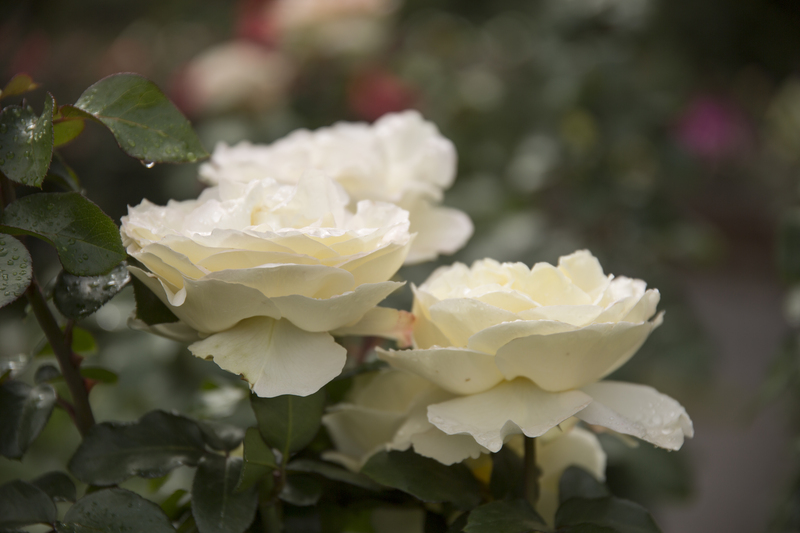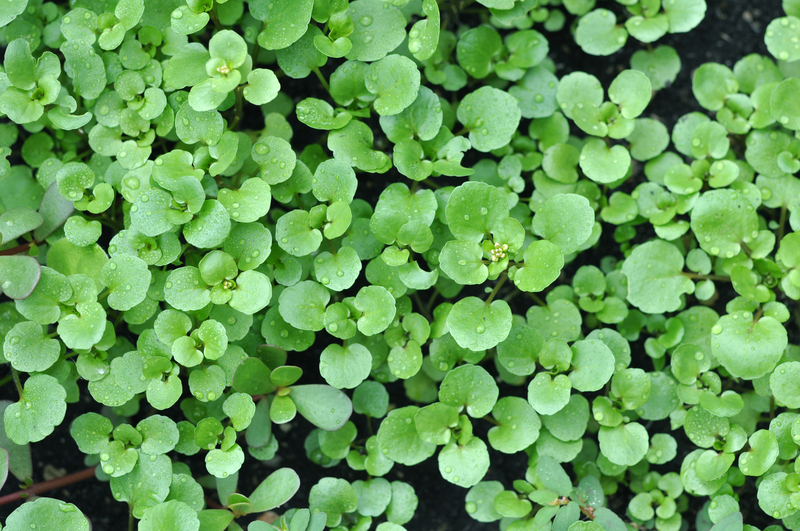9 Crucial Gardening Insights for Beginners to Create Harmony in Nature
Posted on 26/08/2025
9 Crucial Gardening Insights for Beginners to Create Harmony in Nature
Embarking on your gardening journey can be both exciting and overwhelming. If you're a novice gardener seeking to create a balanced, healthy, and harmonious outdoor space, you're in the right place! Gardening for beginners is not just about planting flowers or growing vegetables--it's about fostering a living ecosystem where plants, insects, soil, and even you thrive together. Here are nine essential gardening insights for beginners that will guide you to cultivate a sanctuary that blends beautifully with the natural world.

1. Understand Your Local Ecosystem
Every garden is unique, molded by its climate, soil, weather patterns, and surrounding flora and fauna. To achieve garden harmony with nature, begin by researching your area's native plants and typical wildlife. Recognizing what naturally thrives in your region not only boosts your gardening success rate but also supports local biodiversity.
- Observe your yard's sunlight patterns. Notice which spots get full sun, partial sun, or shade throughout the day.
- Analyze your soil. Use a simple soil test kit to determine pH and fertility levels. Healthy soil is the cornerstone of a thriving garden.
- Get to know your local wildlife. Are there pollinators, birds, or beneficial insects commonly seen in your area? Observing them helps you make plant choices that foster local ecological harmony.
Tip: Visit local botanical gardens or parks to see which plants flourish and get inspiration for your own space.
2. Select Native and Pollinator-Friendly Plants
Native plants are adapted to your local conditions, requiring less maintenance, water, and fertilizer. Opting for them supports healthier ecosystems by attracting native pollinators such as bees, butterflies, and birds.
- Research native wildflowers, trees, and shrubs suited for your climate zone.
- Incorporate pollinator magnets like lavender, echinacea, or milkweed in your garden.
- Avoid invasive species that might disrupt your area's ecological balance.
Planting for pollinators enhances both garden diversity and nature's harmony, encouraging balanced predator-prey relationships and ensuring healthy crop yields.
3. Start Small and Expand Gradually
Many beginners are tempted to overhaul their entire yard at once, but sustainable beginner gardening is best achieved by starting modestly.
- Begin with a small raised bed, a few containers, or a compact plot.
- Focus on mastering basic gardening routines such as watering, pruning, and fertilizing before scaling up.
- Expand your garden each season as your confidence and knowledge grow.
Remember: Successful gardening is a journey, not a race. By starting small, you'll avoid costly mistakes and enjoy steadier, long-term progress.
4. Embrace Sustainable Gardening Practices
Modern gardening goes hand-in-hand with sustainability. Adopting eco-friendly gardening tips not only supports the environment but ensures your garden remains healthy and productive for years to come.
- Compost kitchen scraps and yard waste to produce rich, natural fertilizer.
- Reduce plastic by using biodegradable pots or repurposing containers.
- Collect rainwater for irrigation--this conserves resources and is gentler on plants than tap water.
- Practice organic pest control: encourage helpful predatory insects and avoid harsh chemicals.
By integrating these practices, you'll foster an environmentally responsible sanctuary that thrives in harmony with the rhythm of the natural world.
5. Learn the Basics of Soil Health
Soil is the heart of your garden. For robust plant growth, understanding the basics of soil health is paramount. Healthy soil teems with life--from earthworms to beneficial microbes--which keeps your garden ecosystem in balance.
- Test soil texture: Squeeze a handful of moist soil. Sandy soil falls apart; clay forms a sticky blob; loam is crumbly and ideal.
- Feed the soil organically: Add compost, aged manure, or mulch to boost nutrients naturally.
- Avoid over-cultivating, which damages soil structure and microbial life.
Pro Tip: Rotate crops each year in edible gardens to prevent nutrient depletion and reduce pest pressure.
6. Water Wisely and Consistently
Beginners often underestimate the impact of proper watering. Too little or too much water can damage even the hardiest plants. Learning when and how to water ensures strong root systems and resilient growth.
- Water early in the morning to minimize evaporation and allow foliage to dry by evening, reducing disease risks.
- Use mulch around plants to retain moisture, suppress weeds, and regulate soil temperature.
- Install drip irrigation or soaker hoses for efficient, deep watering that saves time and resources.
Consistent watering schedules support the natural rhythms of your garden, helping plants become established and encouraging natural resilience.
7. Observe and Encourage Beneficial Wildlife
Wild creatures play a pivotal role in maintaining a harmonious garden ecosystem. Birds, bees, ladybugs, and even certain spiders control pests, pollinate flowers, and ensure a self-sustaining environment.
- Install birdhouses, bee hotels, or small ponds to offer shelter and water to helpful visitors.
- Plant diverse flowers in clusters to provide sources of nectar and habitat.
- Avoid broad-spectrum pesticides that harm friendly insects as much as pests.
By inviting and observing wildlife, you foster a garden in tune with broader cycles of nature, where every species plays its vital part.
8. Plan for Year-Round Interest
To maintain visual harmony and interest, design your garden with all seasons in mind. A truly harmonious natural garden offers beauty, texture, and activity throughout the year rather than just in spring or summer.
- Choose perennials, shrubs, and trees with staggered flowering and fruiting times.
- Include evergreens for winter structure; add bulbs for early spring bursts of color.
- Incorporate ornamental grasses and seed heads, which offer movement and habitat in the colder months.
A thoughtfully planned garden becomes a living, changing space that delights and supports wildlife even in the quietest season.
9. Cultivate Patience and Practice Mindful Observation
Gardening is more than a hobby--it's a form of meditation and a connection to the earth. Embrace the slow pace and understand that nature cannot be rushed. Regularly spending time observing your plants, wildlife, and weather patterns will deepen your knowledge and appreciation for natural harmony.
- Keep a gardening journal to track what you plant, what thrives, and lessons learned each season.
- Take notes on changes--what insects appear, how weather affects growth, and when flowers bloom.
- Find joy in small successes and view setbacks as opportunities to learn.
With patience and mindful attention, your garden will thrive, revealing the intricate interconnectedness of all living things.

Frequently Asked Questions About Gardening in Harmony with Nature
What are the best plants for beginner gardeners?
Hardy perennials (like daylilies and coneflowers), easy vegetables (such as lettuce, radishes, and tomatoes), and native wildflowers are all excellent starter choices that promote a balanced garden ecosystem.
How do I practice organic gardening as a beginner?
Start by enriching your soil with compost, using mulch, avoiding synthetic pesticides, and embracing beneficial insects for natural pest control. Focus on building healthy, living soil for the best results.
How can I attract pollinators naturally?
Plant native blooms, create flower clusters, provide a water source, and avoid chemical sprays. Diverse plantings ensure pollinators have food throughout the growing season.
Conclusion: Grow More Than Plants--Grow Harmony
Gardening for beginners seeking harmony in nature is both a science and an art. By following these nine crucial insights--understanding your ecosystem, choosing native plants, starting small, embracing sustainability, nurturing soil health, practicing wise watering, encouraging wildlife, planning for every season, and cultivating patience--you'll lay the foundation for a thriving, sustainable, and beautiful garden.
Remember, every plant nurtured and every bee welcomed brings your garden one step closer to harmony with nature. Whether you have a single pot on a balcony or a sprawling backyard, the joy of growing your oasis is a journey worth taking.
- Observe, adapt, and celebrate each milestone. Your nurturing touch will soon yield a haven where you and nature coexist beautifully.
If you're ready to start your gardening adventure, bookmark these essential gardening insights for novices, roll up your sleeves, and discover how rewarding it can feel to create harmony in your little corner of the earth.
Latest Posts
Windbreaks and Barriers: Essential for Windy Gardens
Pet-Centric Garden Solutions for Vibrant Yards
Curate a Nature-Inspired Playground in Your Garden
Create a Serene Space with 5 Budget-Friendly Low Maintenance Ideas

